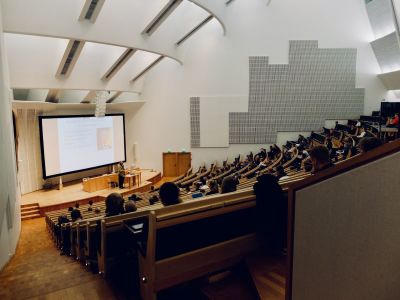Why Christian colleges are closing and what we can do

It’s no secret that the state of higher education in the United States is, overall, not good. This is true of both public and private colleges and universities, non-religious, religious, and even specifically Christian schools. In fact, over the last few months, several long-established Christian schools announced cutbacks, budget crises and major restructuring. In some cases, it is far from certain that they will survive.
Trinity International University, one of my alma maters, recently announced that their entire undergraduate program would be moved online, with no residential option offered. Around the same time, The King’s College in New York City announced it had secured a $2 million loan to stay open, but only until May. Institutions dealing with financial crises, when added to the many stories of institutions that have caved to theological and moral compromise, mean that, in the very near future, there will be far fewer options for those who wish to study or teach at a distinctly Christian institution.
On one hand, institutions of higher education face a perfect storm of factors, few of which, if fixed, would solve the crisis. For many schools, enrollments have not kept up with expectations, leaving too much debt and too many empty buildings. The COVID epidemic not only sent students home but exposed them to online alternatives, and many have yet to return. Students, staff, and especially administrators got used to “zoom universities” and realized they could get as much or more bang for the buck online without the trouble of feeding, housing, and entertaining people in person.
While online alternatives increase access to education, they also subject the educational project to purely financial considerations. Too many schools see online programs as the only profitable option, whether or not they serve the educational interests of students. For public institutions, the over-generosity of the federal government incentivizes schools into accepting too many students. In the end, too many people are left with incredible amounts of debt, which devalues the buying power of a college degree.
And, of course, too many educators are more interested in creating activists rather than educating students. This is now an endemic reality at “secular” schools. But it is more disheartening to consider the number of once-faithful Christian schools that are now captive to the critical theory mood that pervades the rest of academic culture. Why would Christian parents spend thousands on an education that has “progressed” so far beyond biblical authority and historic Christian morality when the education offered is indistinguishable from cheaper, secular options? And it’s not just the “secular” schools that are sharing this fate. I’m not going to name any names, but it is disheartening to consider the number of once-faithful schools that have “progressed” beyond the authority of the Bible or millennia of Christian and Jewish moral reflection. If even the ostensibly “safe” schools are liable to this kind of mission drift, what are Christian parents to do when guiding their children toward a better future?
Like with any crisis, the situation in higher education also presents opportunities. One of our mottos at the Colson Center is that “outrage is not a strategy,” and that’s just as true here as it is elsewhere. Our calling by God is not to sit back and be angry but to bring His kingdom into this world. A crisis can also be an opportunity. The Church, once again, can be an inventive and redemptive force in education for the glory of God and the life of the world. After all, the Church has always valued learning. The entire Western educational system, in fact, is rooted in practices and customs flowing from the ideals and beliefs of Christianity. Those same ideals can still animate new opportunities for educational excellence. As the contemporary educational system struggles, the answer is not to abandon education, or to compromise our efforts to be acceptable to a failed system. Rather, Christians have the chance to offer our neighbors something better.
In his article “Christian Apologetics,” which can be found in a collection of essays entitled God in the Dock, C.S. Lewis wrote:
What we want is not more little books about Christianity, but more little books by Christians on other subjects—with their Christianity latent. You can see this most easily if you look at it the other way round. Our Faith is not very likely to be shaken by any book on Hinduism. But if whenever we read an elementary book on Geology, Botany, Politics, or Astronomy, we found that its implications were Hindu, that would shake us. It is not the books written in direct defense of Materialism that make the modern man a materialist; it is the materialistic assumptions in all the other books. In the same way, it is not books on Christianity that will really trouble him. But he would be troubled if, whenever he wanted a cheap popular introduction to some science, the best work on the market was always by a Christian.
What Lewis wrote about books applies to higher education. Our challenge and our opportunity is to build better schools and great colleges. What if, when a watching world was looking for a place to send their kids or find their employees, the best option on the market was by a Christian?
Originally published at BreakPoint.
John Stonestreet serves as president of the Colson Center for Christian Worldview. He’s a sought-after author and speaker on areas of faith and culture, theology, worldview, education and apologetics.
Timothy D. Padgett (PhD) is the Managing Editor of BreakPoint.org with the Colson Center for Christian Worldview. His focus is on cultural engagement, living out the Christian worldview, and the way Christians argue for diverse viewpoints while sharing a common biblical foundation?particularly regarding the relationship between church and state, Christ and culture, and war and peace.




















